- Overview
- Symptoms
- Causes & Risks
- Diagnosis
- Types
- Major Depressive Disorder
- Treatment
- Antidepressants
- Treatment-Resistant Depression (TRD)
- Living With
- Recovery & Relapse
- Complications
- Caregiving & Support
- Appointment Prep
- View Full Guide
Celebrities With Depression

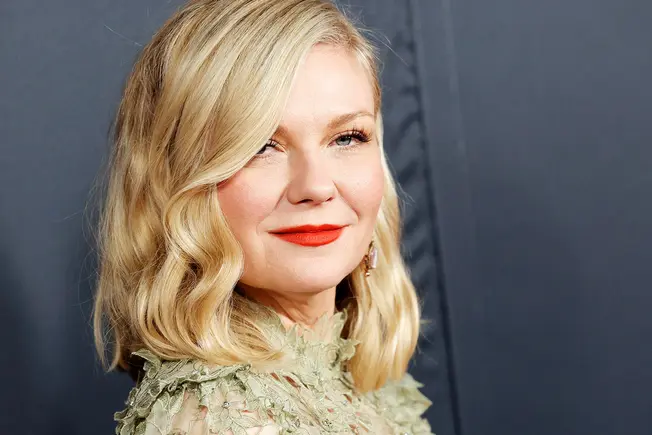
Kirsten Dunst
The 42-year-old actor has revealed that when she was in her 20s, she entered a rehab center for help with depression. Dunst says she struggled with the condition for years and realized she was bottling up a lot of anger. "All I'll say is that medication is a great thing and can really help you come out of something," she says. "I was afraid to take something and so I sat in it for too long. I would recommend getting help when you need it."
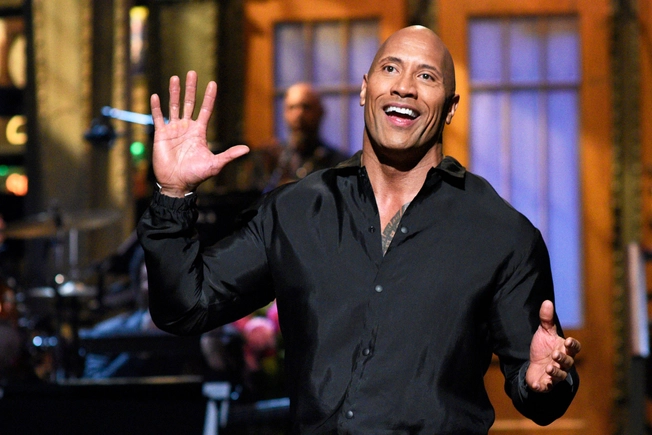
Dwayne Johnson
He’s one of Hollywood’s highest paid actors, but “The Rock” recently opened up about depression to the Express, a British newspaper. “Struggle and pain is real,” said Johnson, who saved his mother from a suicide attempt when he was 15. “Depression never discriminates,” he tweeted later. “Took me a long time to realize it but the key is to not be afraid to open up. Especially us dudes have a tendency to keep it in. You’re not alone.”
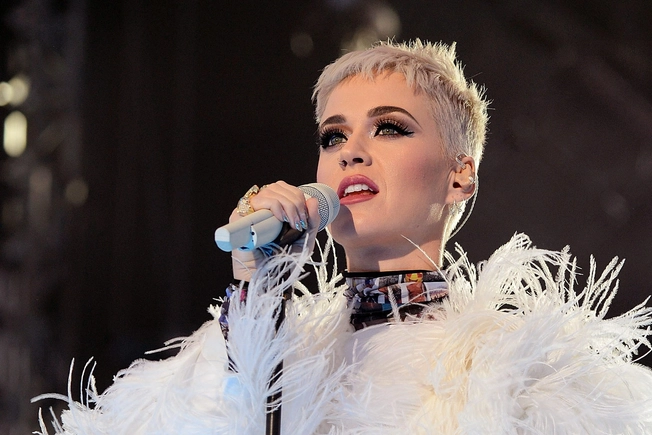
Katy Perry
The pop star shared her struggles with depression during a 96-hour livestream on YouTube. In an emotional session with Siri Sat Nam Singh, host of the Viceland channel’s The Therapist, Perry said she opened up because she wanted her fans to see her true self. "If people can see that I'm just like them, they can dream just as big."
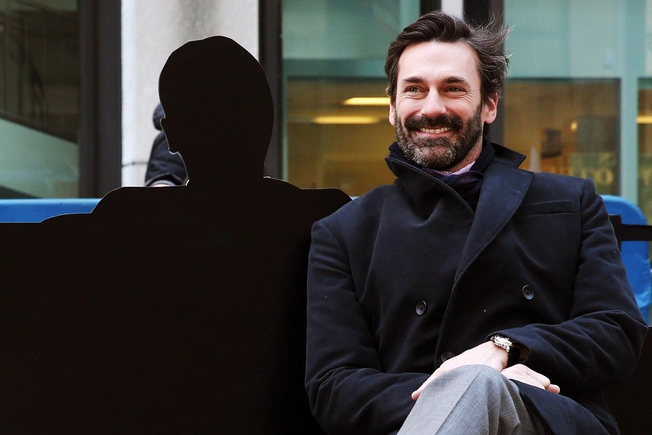
Jon Hamm
Just like his character Don Draper on Mad Men, Hamm has battled some heavy stuff. He’s been open about his bouts with depression and says it was particularly rough after his father died when he was in college. In an interview with InStyle magazine, Hamm spoke about the benefits of therapy. “We live in a world where to admit anything negative about yourself is seen as a weakness, when it’s actually a strength. It’s not a weak move to say, ‘I need help.’ ”
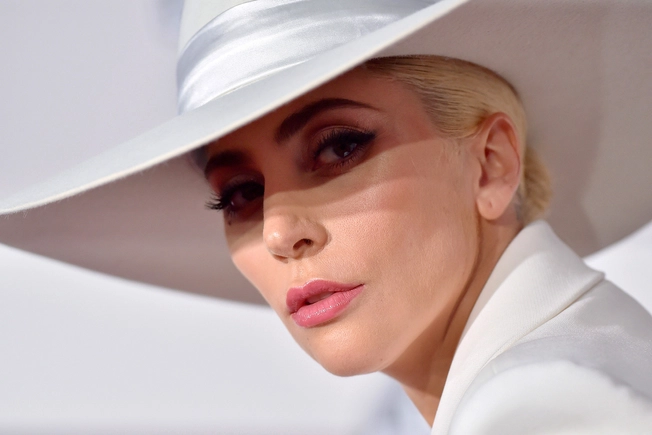
Lady Gaga
The pop star, whose hits include "Paparazzi” and “Poker Face,” says she’s dealt with both depression and anxiety her whole life. Gaga isn't ashamed to admit she takes medication for depression. In an interview with Billboard magazine, she said she thinks it’s important for people to talk about their mental health. “If we share our stories and stick together, we’re stronger.”
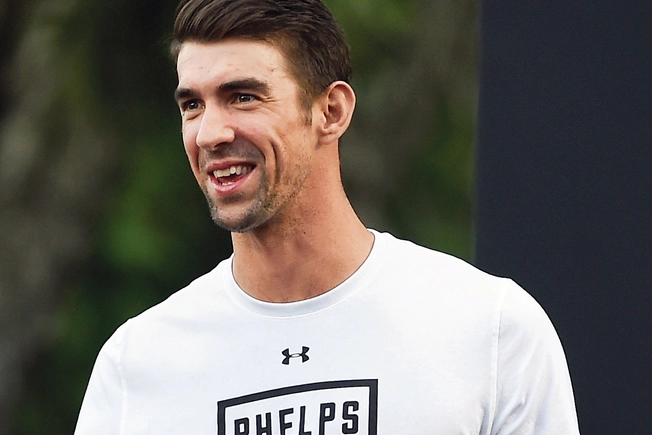
Michael Phelps
The swimmer who’s won 28 Olympic medals said his first “depression spell” happened in 2004, but his lowest point came after the 2012 Games, according to CNN. Phelps said he sat alone in his bedroom for 3 to 5 days “not wanting to be alive,” and he knew he needed help. After he sought treatment and started talking about his feelings, he said “life became easy.” Now he understands that “it’s OK to not be OK.”
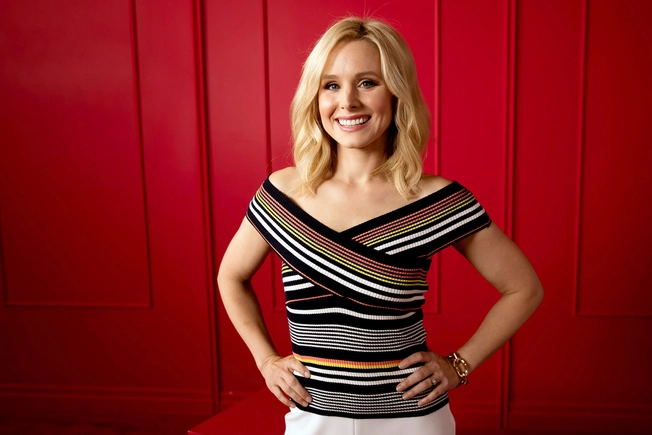
Kristen Bell
The actress, known for voicing the character of Anna in the movie Frozen, says she’s had depression since she was in college. In an essay for the website Motto, Bell says, "There’s nothing weak about struggling with mental illness." She says she went public to try to shed more light on the disorder and ease the stigma around it.
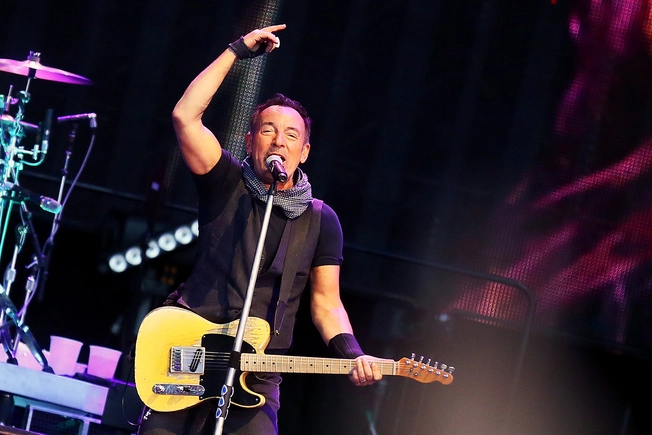
Bruce Springsteen
“The Boss” had bouts of depression in his 60s that “lasted for a long time,” he told CBS Sunday Morning. “It’s like this thing that engulfs you. I got to where I didn’t want to get out of bed.” He said it didn’t affect his work, and wife Patti Scialfa’s “strength and love” were key. “She’d say, ‘You’re going to be OK. Maybe not today or tomorrow, but it’s going to be all right.' ” He also got help for the condition from therapy and medication.
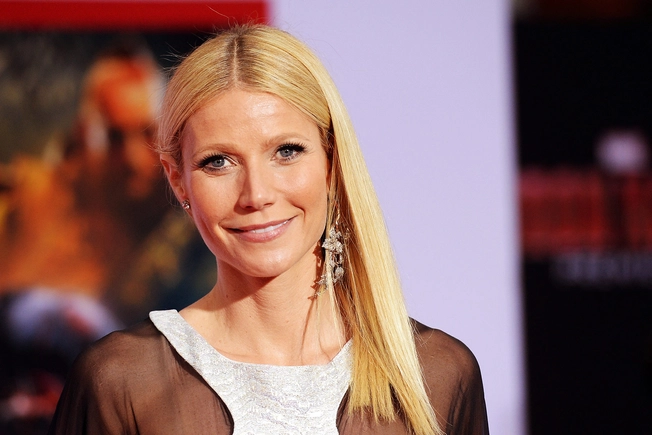
Gwyneth Paltrow
This Academy Award-winning actress shined a light on postpartum depression when she opened up about her 5-month battle after the birth of her second child, Moses. “I felt like a zombie,” she told Good Housekeeping in 2011. “I couldn't access my heart. I couldn't access my emotions. I couldn't connect.” She dealt with clinical depression, too, after her father died in 2002.
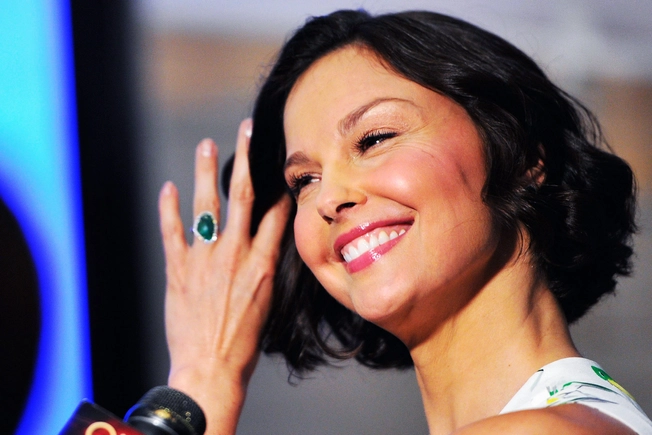
Ashley Judd
This Kiss the Girls actress had what she calls a “dysfunctional” childhood. She felt isolated and insecure. As a result, she’s felt a deep sadness as an adult. Things took a turn for the better, though, when she checked into a treatment facility in 2006. “I needed help,” she told Glamour magazine. “I was in so much pain.”
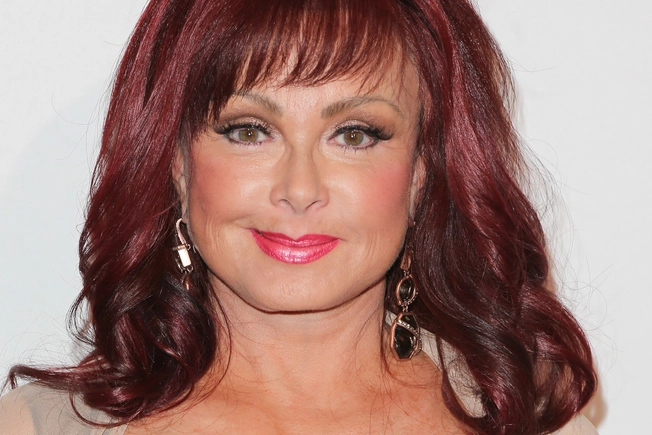
Naomi Judd
Ashley's mother, Naomi Judd, the country music icon, died by suicide in April 2022 after a long battle with depression. She told ABC News and WebMD contributor Robin Roberts that she began to feel what she called “completely debilitating and life-threatening depression” in 2010. She says she “would come home and not leave the house for 3 weeks and not get outta my pajamas, not practice normal hygiene. It was really bad.” She wrote about her depression in her book River of Time: My Descent into Depression and How I Emerged with Hope.
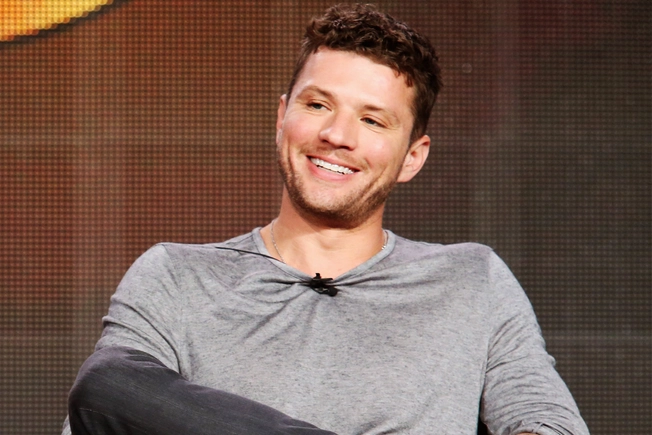
Ryan Phillippe
The Cruel Intentions actor says his battle with depression began at a young age. “As you get older, I think it decreases some, but I'm just innately kind of a sad person,” he recently told Elle magazine. Phillippe hasn’t let his condition keep him from shining onscreen, though. He recently starred in the film Saint Clare.
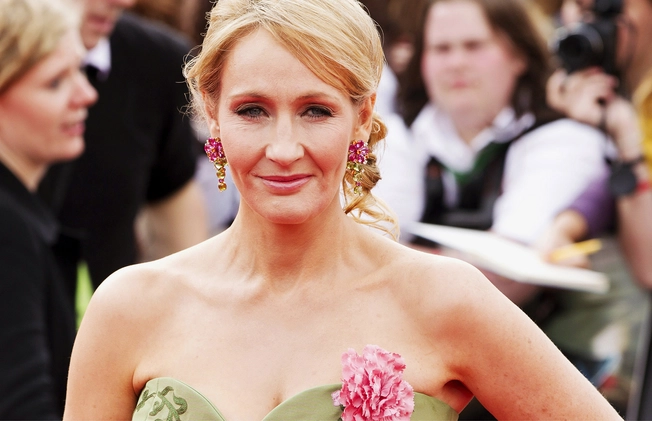
J.K. Rowling
The woman behind Harry Potter brought joy to millions, but admits she felt despair while writing the magical novels. Her dark moods even inspired her series’ soul-sucking creatures known as Dementors. “It's so difficult to describe [depression] to someone who's never been there, because it's not sadness,” she told Oprah Winfrey in 2010. “But it's that cold absence of feeling -- that really hollowed-out feeling.”
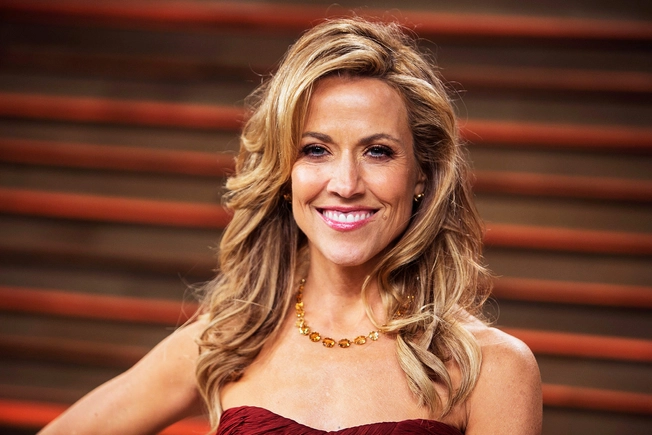
Sheryl Crow
The nine-time Grammy-winning singer battled depression even before she faced down breast cancer and a benign brain tumor. “I have a strong sense of melancholy,” she told London’s The Telegraph in 2014. “I played piano at an early age out of a need to feel something.”
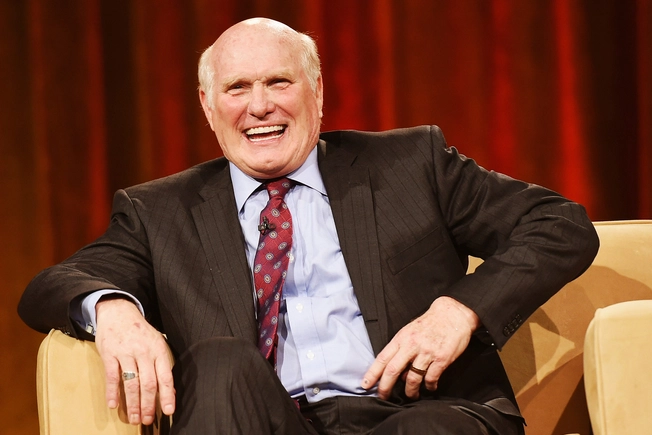
Terry Bradshaw
The NFL Hall of Famer and popular football commentator believes he had depression for years, but he wasn’t diagnosed and treated until the late ‘90s. He now shares his story, hoping to reduce the stigma surrounding the mental illness. “I thought maybe I could help people with awareness, help men get the strength and courage,” he told the Chicago Tribune in 2003.
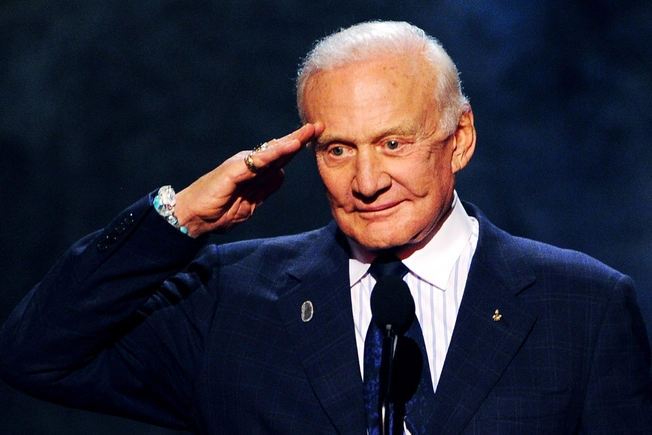
Buzz Aldrin
Even walking on the moon couldn’t stop Buzz Aldrin from feeling low. In fact, the astronaut’s sudden fame after the 1969 moon landing led to his divorce, plus problems with alcohol and depression. Unhappiness runs in his family, he told The New York Times. His mother and maternal grandfather suffered from the disease, to the point of both sadly having committed suicide. So Aldrin sought treatment and became chairman of the National Mental Health Association.
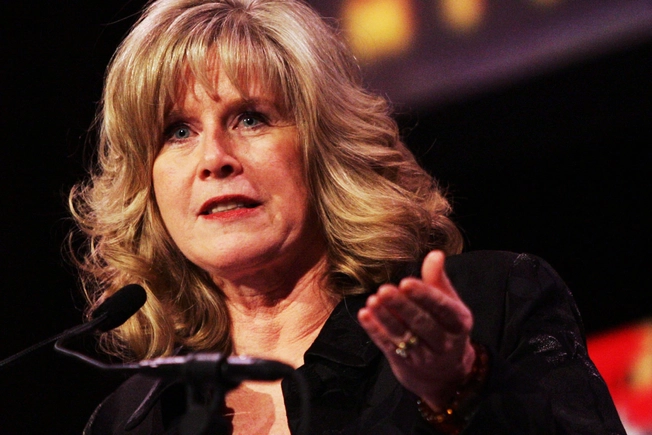
Tipper Gore
Back in 1999, while Al Gore was vice president, the second lady shared her struggles with sorrow. She got treatment after her son had a near-fatal car accident. “I know how important good mental health care can be because I personally benefited from it,” she wrote in a USA Today op-ed. Medications and counseling helped her get better.
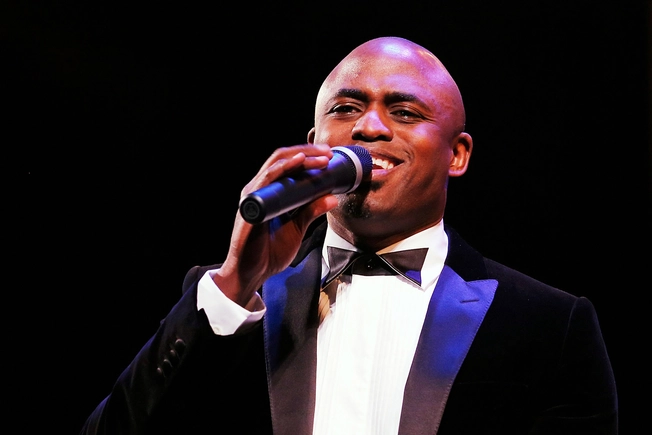
Wayne Brady
This comedian’s upbeat public image hid a long fight with mental illness. Brady described his experience to Entertainment Tonight in 2014. “You don't want to move; you can't move in the darkness.” He opened up in an effort to stop the double standard in Hollywood, he said, where it seems more acceptable to admit to a drug problem than to clinical depression.
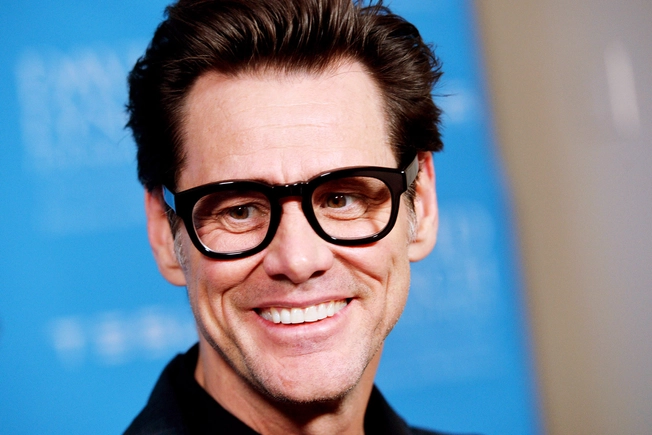
Jim Carrey
The man behind some of the craziest characters on screen, from the Grinch to Ace Ventura, says he’s had some dark days. He’s open about taking antidepressants and leads a very clean, spiritual life. “I rarely drink coffee,” he told 60 Minutes. “I'm very serious about no alcohol, no drugs. Life is too beautiful.”
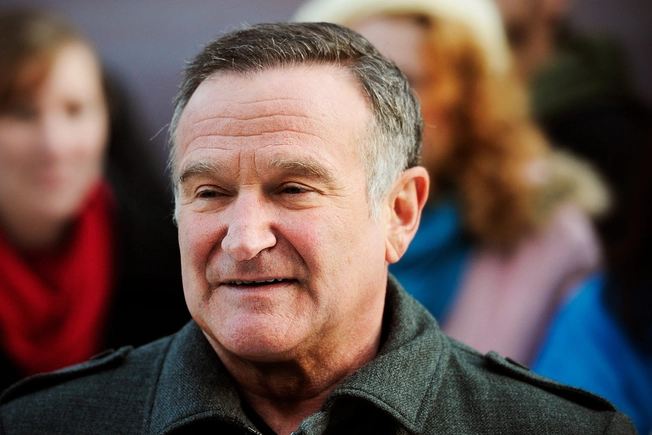
Robin Williams
His death by suicide in 2014 shocked millions, but the Academy Award-winning actor/comedian had a history with depression, substance and alcohol abuse. He had been diagnosed with Parkinson's and may have had a form of dementia. In 2006, he described his highs and lows to NPR’s Terry Gross. “Do I perform sometimes in a manic style? Yes. Am I manic all the time? No. Do I get sad? Oh yeah. Does it hit me hard? Oh yeah.”
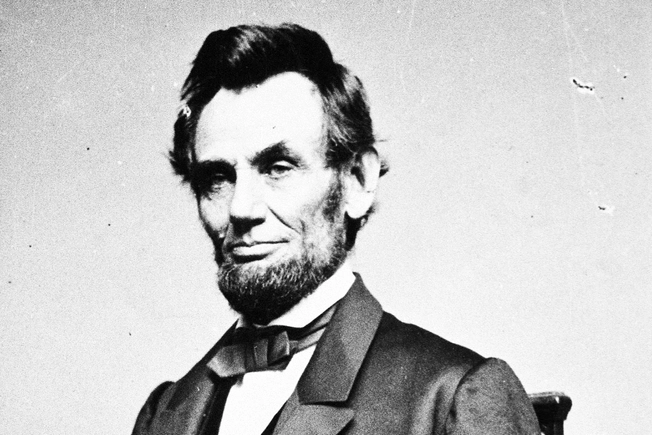
Historical Figures
Even our 16th president had bouts of what he called melancholy. “If what I feel were equally distributed to the whole human family, there would not be one cheerful face on the earth,” Abraham Lincoln wrote a law partner in 1841. “Whether I shall ever be better, I cannot tell.” He relied heavily on friends, family, and a trusted doctor to see him through his darkest times. Other historical figures who reportedly wrestled with depression include Ernest Hemingway, Winston Churchill, psychoanalyst Sigmund Freud, and General William T. Sherman.
IMAGES PROVIDED BY:
1) Amy Sussman / Getty Images
2) NBC / Getty Images
3) Kevin Mazur / One Love Manchester / Getty Images
4) Neilson Barnard / Getty Images
5) Axelle / Bauer-Griffin / Getty Images
6) Marcelo Endelli / Getty Images
7) NBC / Getty Images
8) Ernesto Ruscio / Getty Images
9) Jason Merritt / TERM / Getty Images
10) Alberto E. Rodriguez / Getty Images
11) Paul Archuleta / Getty Images
12) Frederick M. Brown / Getty Images
13) John Phillips / Getty Images
14) ADRIAN SANCHEZ-GONZALEZ / Getty Images
15) Andrew H. Walker / Getty Images
16) Kevin Winter / Getty Images
17) Evan Agostini / Getty Images
18) Jemal Countess / Getty Images
19) Kevin Winter / Getty Images
20) CARL COURT / Getty Images
21) Staff / Getty Images
SOURCES:
Forbes: “Full List: The World’s Highest-Paid Actors And Actresses 2017.”
Express: “Dwayne ‘The Rock’ Johnson: My secret battle with depression.”
Twitter: Dwayne Johnson (@TheRock)
People: “Katy Perry Breaks Down in Shockingly Honest Therapy Session as She Opens Up About Past Suicidal Thoughts,” “Ashley Judd on Rehab: ‘I Needed Help,’” “Gwyneth Paltrow: ‘I Felt Like a Zombie’ With Postpartum Depression,” "Gwyneth Paltrow: 'I Battled Depression,'" “Bruce Springsteen Opens Up About His Bouts fo of Depression: ‘I Didn’t Want to Get Out of Bed,’” “Wayne Brady Speaks Out About His Depression: 'It Ate Away at Me Daily.'“
Observer: “Mad Men: Jon Hamm on Life as Don Draper and the Blessings of Late Fame.”
InStyle: "Jon Hamm on Life After Mad Men and Why Being Single 'Sucks.' ”
CBSNews: “Lady Gaga says she struggles with depression, anxiety,” “Carrey: ‘Life is Too Beautiful.’”
Billboard: “Lady Gaga’s Top 100 Billboard Hits, ” “Billboard Cover: Lady Gaga Gets Personal About Saving Troubled Teens -- 'I've Suffered Through Depression and Anxiety My Whole Life”'
Teen Vogue: “Lady Gaga Opens Up About Her Depression.”
Elle: “Hot Guy/Cold Drink: Absinthe and Secrets with Ryan Phillippe.”
Oprah Winfrey Show: “The Brilliant Mind Behind Harry Potter.”
The Telegraph: “I've Quit Letting People Run Over Me.”
Chicago Tribune: “Depression Awareness Campaign Aids Bradshaw, Too.”
The 700 Club: “An Interview With Terry Bradshaw.”
Today: “Ashley Judd Says She Was Treated for Depression.”
NBC News, interview with Ashley.
The New York Times Magazine: “The Man on the Moon.”
Psychology Today: “Buzz Aldrin: Down to Earth.”People:
Washington Post: “Tipper Gore Details Depression Treatment.”
The New York Times: “Tipper Gore Says She Took Treatment for Depression.”
Entertainment Tonight: “Wayne Brady Opens Up About His Depression: 'I Had a Complete Breakdown.'“
CNN: “Jim Carrey on Films, Depression, and Love,” "Michael Phelps: 'I am extrremely thankful that I did not take my life."
NPR: “Fresh Air With Terry Gross: Robin Williams,” “Exploring Abraham Lincoln’s ‘Melancholy.’”
LA Times: “Robin Williams Friends Saw Signs He Was Succumbing to Depression.”
The Atlantic: “Lincoln’s Great Depression.”
Salon: “7 Historical Figures Who Wrestled with Depression.”
CBS Sunday Morning: “Bruce Springsteen: ‘I’m Still In Love with Playing.”
ABC News: “Kirsten Dunst discusses struggle with depression, going to rehab for her mental health.”